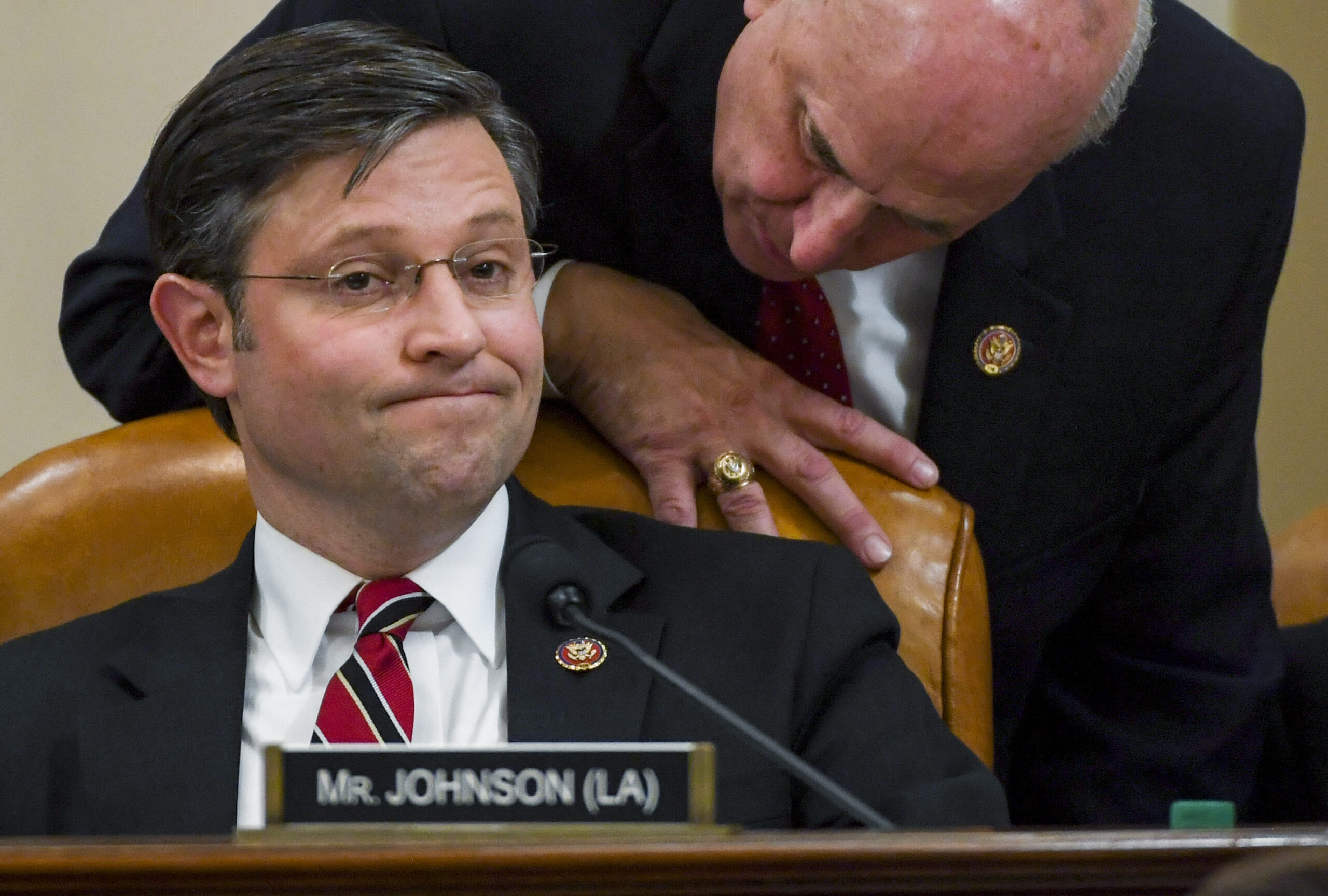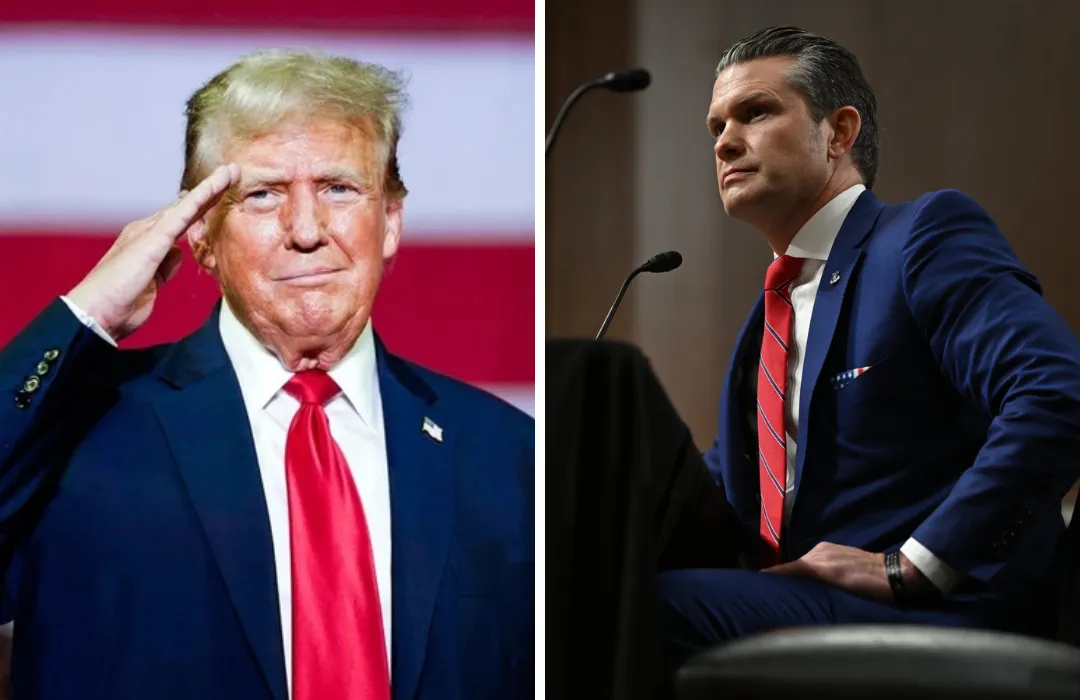House Speaker Mike Johnson has issued one of his starkest warnings yet about the future of American politics, predicting that Democrats will launch a fresh impeachment effort against President Donald Trump if they retake control of the House of Representatives in the 2026 midterm elections.
His comments, made during an interview on Fox News’ The Ingraham Angle, underscored the continued volatility surrounding Trump’s political future and the deep partisan divides shaping the government shutdown fight.
With a potential shutdown looming and negotiations over healthcare subsidies deadlocked, Johnson seized the moment to highlight what he believes is the Democrats’ ultimate goal: weakening Trump through legal and legislative attacks. “Imagine if the Democrats took over the House,” Johnson cautioned. “They’d impeach him.”
Johnson’s warning came just hours after the House passed a short-term continuing resolution to keep the government funded through November 21. The measure aimed to avert a shutdown and provide lawmakers time to negotiate a broader spending agreement.
But the Senate proved less cooperative. Republicans accused Senate Minority Leader Chuck Schumer and his Democratic caucus of sabotaging negotiations by demanding healthcare coverage for undocumented immigrants as a condition for advancing the bill.
The measure ultimately failed to clear the 60-vote threshold, setting the stage for another bruising round of blame-shifting between the parties.
For Johnson, the impasse represented more than just a budgetary disagreement. It was a symbol of the broader war Democrats have waged against Trump since he entered politics.
“Democrats have nothing left but to gum up government and harass Trump and Republicans,” Johnson said, framing the shutdown as one more tool in the Democratic arsenal.
Johnson’s prediction that Democrats would attempt to impeach Trump a third time if they regain control is not without precedent. Trump remains the only president in American history to have been impeached twice.
In December 2019, House Democrats impeached him on charges of abuse of power and obstruction of Congress, alleging that he withheld military aid to Ukraine in exchange for political favors. The Senate, then controlled by Republicans, acquitted him in early 2020.
Barely a year later, following the events of January 6, 2021, Democrats impeached Trump again, this time for incitement of insurrection. The Senate trial that followed ended in acquittal once more, though several Republicans joined Democrats in voting to convict.
Both impeachments reflected not only Democrats’ determination to remove Trump but also the extraordinary political turbulence of his presidency. Johnson argues that if Democrats are given the opportunity, they will not hesitate to revisit those tactics.
Johnson’s comments also touched on the broader challenges Trump continues to face outside the halls of Congress. Since leaving office, Trump has been the target of multiple legal proceedings, including state-level cases in New York and Georgia. His critics see these as legitimate attempts to hold him accountable; his supporters view them as politically motivated witch hunts.
In addition to the legal battles, Trump has survived two assassination attempts in the past year, reminders of the heightened risks surrounding his political life. Johnson referenced these incidents as evidence of the dangerous environment created by extreme political polarization.
“The Democrats and their allies have tried everything — impeachments, investigations, state indictments, and even open hostility that puts his life at risk,” Johnson said. “It shows they are obsessed with stopping him by any means necessary.”
Despite the threats Johnson outlined, he expressed confidence that Republicans would maintain and even expand their House majority in the 2026 midterms. “We’re gonna win the midterms,” he declared. “We’re not just going to hold the House, we’re going to grow it.”
Johnson’s optimism stems from polling that shows voters increasingly frustrated with Democratic leadership during the shutdown negotiations, particularly the perception that Democrats are prioritizing healthcare benefits for non-citizens over fiscal responsibility.
Still, Republicans hold only a narrow majority in the House, making the next election pivotal. Johnson emphasized that keeping the House under Republican control is essential to protecting Trump from impeachment and ensuring the party’s agenda remains intact.
The possibility of another impeachment fight raises questions about its political impact. Trump’s first two impeachments failed to remove him from office and arguably strengthened his bond with supporters, who viewed him as a victim of partisan overreach.
However, a third impeachment could carry new risks, particularly if Democrats gain momentum and secure a Senate majority. Even if conviction remains unlikely, the spectacle of another impeachment battle would consume national attention and further divide the country.
Johnson framed the issue not simply as a partisan struggle but as a matter of national stability. “The American people deserve a government focused on solving problems, not rehashing old battles,” he said. “Democrats would drag us backwards into endless impeachments and investigations instead of moving forward.”
While Democrats have not formally announced plans to pursue impeachment should they win the House, their leadership has consistently portrayed Trump as unfit for office. From his handling of January 6 to his ongoing legal entanglements, they argue that Trump represents a threat to democratic norms.
Privately, some Democrats see impeachment as a useful tool to weaken Trump politically, even if conviction is unlikely. Publicly, they insist their focus is on healthcare, voting rights, and other policy priorities.
But Johnson’s warning reflects a widespread Republican belief that Democrats’ ultimate aim is to sideline Trump by any means available.
The current political climate has been described by analysts as one of the most divisive periods in modern history. With Trump seeking to solidify his hold on the Republican Party and Democrats determined to block him, nearly every issue — from budget negotiations to healthcare policy — has become part of a larger existential battle.
The shutdown fight illustrates this dynamic vividly. For Republicans, the standoff is about resisting Democratic demands for taxpayer-funded benefits for non-citizens. For Democrats, it is about preventing what they see as draconian cuts to healthcare that will harm vulnerable Americans.
Into this mix comes Johnson’s impeachment warning, which elevates the stakes further. The message to voters is clear: the outcome of the 2026 midterms could determine not only the direction of federal policy but also whether Trump faces another attempt to remove him from office.
Trump remains the dominant figure in Republican politics, shaping the party’s identity and strategy even years after leaving the White House. Johnson’s decision to link the midterms directly to protecting Trump reflects the reality that the GOP’s fortunes are deeply tied to his.
For Republican voters, Trump represents a champion against entrenched elites and hostile institutions. For Republican leaders, defending him is synonymous with defending their base.
Johnson’s message — that Democrats will impeach Trump again if given the chance — is designed to galvanize Republican turnout and unify the party around a shared sense of urgency.
At the same time, some strategists warn that focusing too heavily on impeachment could backfire by making Republicans appear obsessed with Trump at the expense of other issues.
Polls show that while many Republican voters remain loyal to Trump, independents and moderates are more concerned about inflation, healthcare costs, and public safety.

If Republicans define the 2026 midterms solely as a referendum on protecting Trump, they risk alienating voters who want a broader vision for the country. Johnson, however, appears convinced that the threat of impeachment is potent enough to mobilize support.
Speaker Mike Johnson’s warning that Democrats will move to impeach Trump again if they regain control of the House highlights the extraordinary stakes of the upcoming 2026 midterm elections.
With a government shutdown already fueling partisan rancor, Johnson’s comments add a new layer of urgency to the GOP’s efforts to maintain their slim majority.
Trump’s history as a twice-impeached president, his ongoing legal challenges, and his polarizing presence in American politics make the threat of a third impeachment plausible, at least in the eyes of Republicans. For Democrats, the possibility remains a powerful tool to constrain a political opponent they view as dangerous.
The next two years will determine not only whether the government reopens smoothly but also whether impeachment becomes the defining feature of American politics once again. For Johnson and his allies, the message is clear: Republicans must win to protect Trump, defend their agenda, and preserve stability in Washington.






